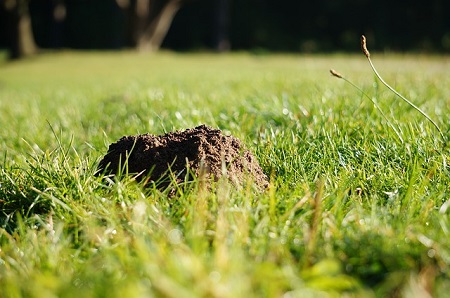His Name Is Mud
 Many children love to play in mud. Some animals roll in mud. However, no one wants to hear his name is mud.
Many children love to play in mud. Some animals roll in mud. However, no one wants to hear his name is mud.
Anyone whose name is mud is in trouble.
The person’s bad situation makes him:
- Unpopular
- Dishonored
- Have a bad reputation
Many believe his name is mud began with Dr. Samuel Mudd.
Dr. Mudd treated John Wilkes Booth’s broken leg after Booth killed President Abraham Lincoln. Dr. Mudd went to jail but was later pardoned. Many say he was innocent of any wrong. However, his reputation suffered.
His name is mud was a common expression before Dr. Mudd.
It often meant a person was a fool.
A person whose name is mud can come clean.
If guilty of bad behavior, he can:
- Admit his mistakes
- Ask forgiveness
- Turn to God for guidance
If innocent of bad behavior, he can:
- Live a life that shows his innocence
- Explain what happened, if he thinks that will help
- Show proof of his innocence
- Watch his step to prevent future problems
“He lifted me out of the slimy pit, out of the mud and mire; he set my feet on a rock and gave me a firm place to stand” (Psalm 40:2).
Thanks to Terry Brewer for the suggestion.
Do you have an expression you want explained or a thought about this one? If so, please comment below.
Subscribe to receive my weekly posts by email and receive a free copy of “Words of Hope for Days that Hurt.”
If you enjoyed this post, please share it with your friends.
 I always thought up a stump meant the same as stumped. My friend Patty Cooper Emerson explained a difference in the two.
I always thought up a stump meant the same as stumped. My friend Patty Cooper Emerson explained a difference in the two.
 We all get down in the mouth sometimes.
We all get down in the mouth sometimes. When we get mad as a wet hen, we get angry – very angry.
When we get mad as a wet hen, we get angry – very angry. If I take a wrong step in
If I take a wrong step in  If we get up early, we begin to see daylight as the sun rises. After a long night, daylight appears. We enjoy the promise of a new day.
If we get up early, we begin to see daylight as the sun rises. After a long night, daylight appears. We enjoy the promise of a new day. We often let the smallest problem bother us most.
We often let the smallest problem bother us most.
 Dogs (especially puppies) often get in trouble. They:
Dogs (especially puppies) often get in trouble. They: If we are poor as a church mouse, we are the poorest of the poor.
If we are poor as a church mouse, we are the poorest of the poor.  “Dry your tears. There is no need to cry over spilled milk.”
“Dry your tears. There is no need to cry over spilled milk.”